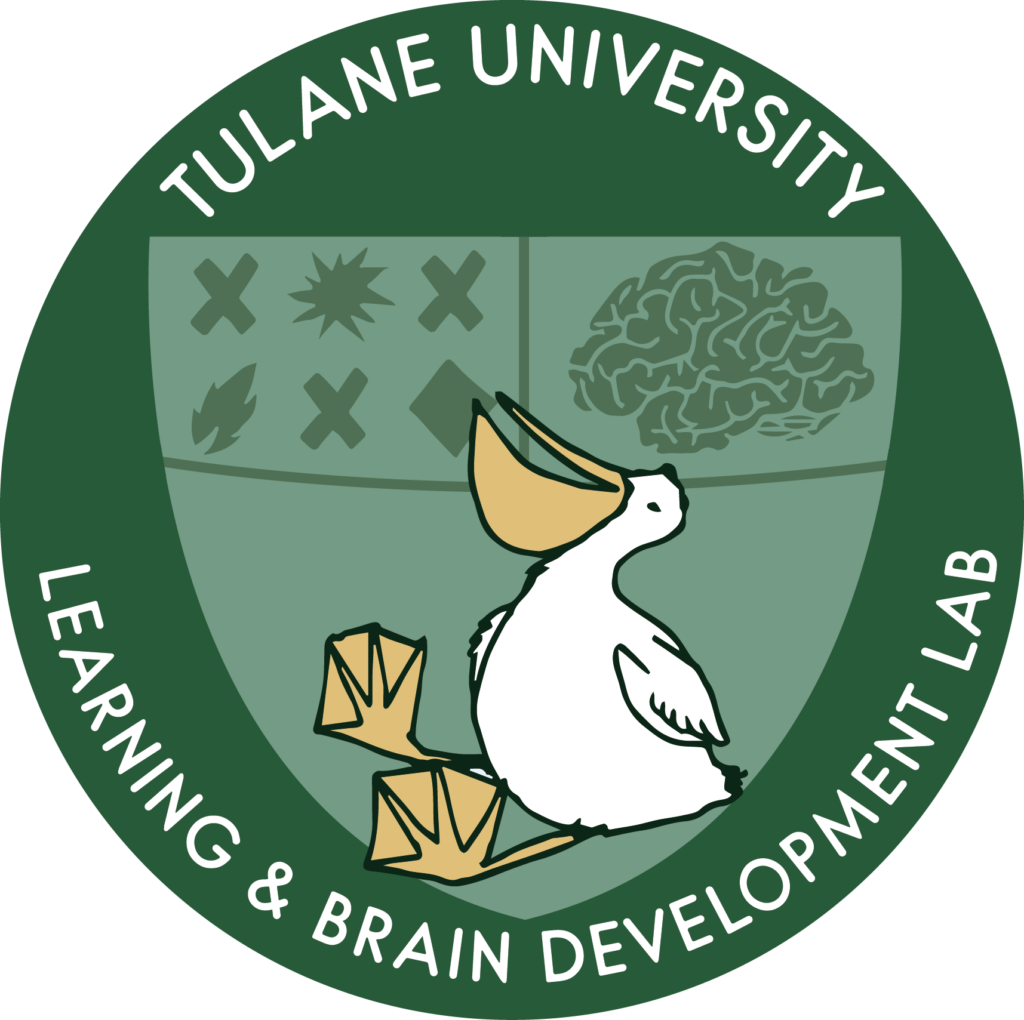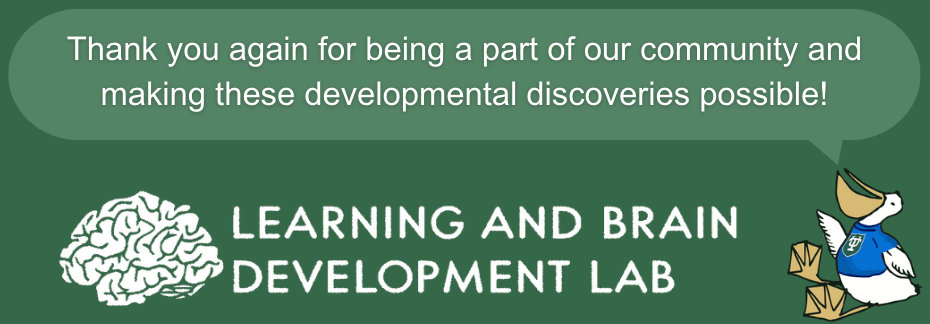LBD Lab Newsletter
Spring 2025 Newsletter

Thank you for being a part of our krewe!
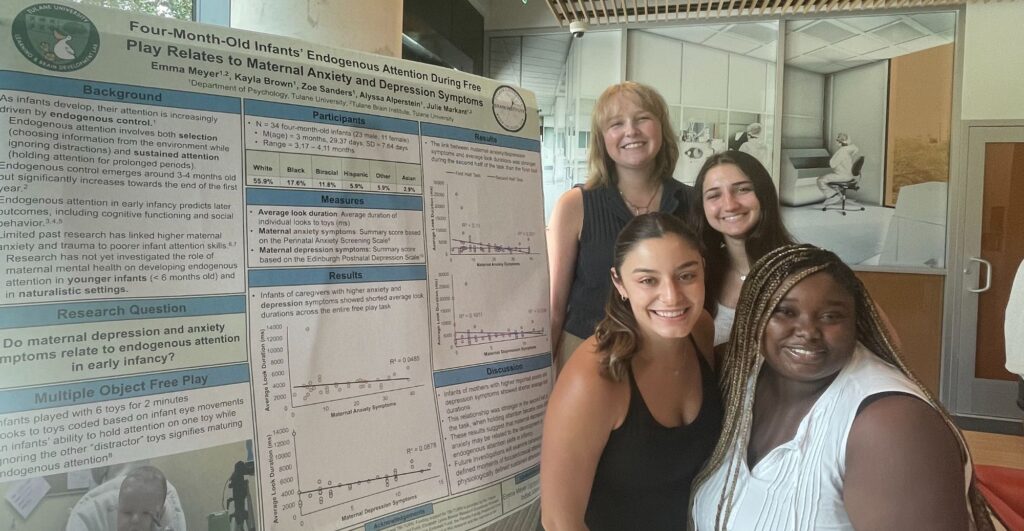
Families like yours keep our research rolling!

Let us know if your family has grown!
If you’re pregnant, have a new child, or if any of your contact
information has changed, let us know! We’re always starting new
studies for children of all ages, and we can keep you updated on
exciting research opportunities for your family as they become available.
Please also share the word with others that may be interested!
Curious about what we've discovered?
If your family has been a part of our research in the past several years, read on to see the discoveries your child has made possible!
We’re also excited to share what we’ve been up to in the community and some exciting awards and achievements from our team.

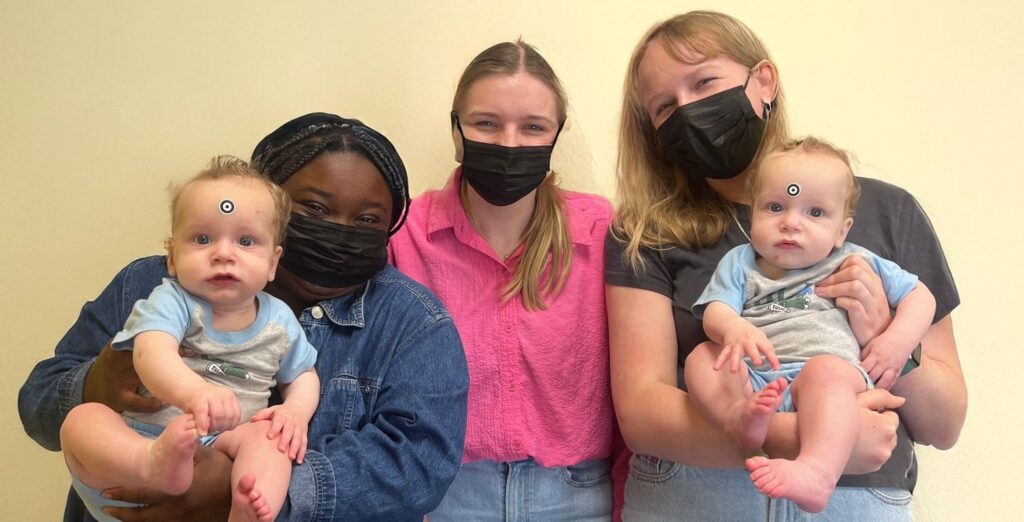
How do infants develop the ability to focus and ignore distractions in the first year?
There’s much more to learn as this ongoing study continues, but we’re excited to share some of our early discoveries here!
Social Networks & Early Attention Development
- Infants with more fragmented social networks were faster to shift their attention to strangers than to caregivers at 4 months.
- At 6 months, the reverse was found! Infants with larger social networks were faster to shift their attention to strangers, despite preferring caregivers overall at this age.
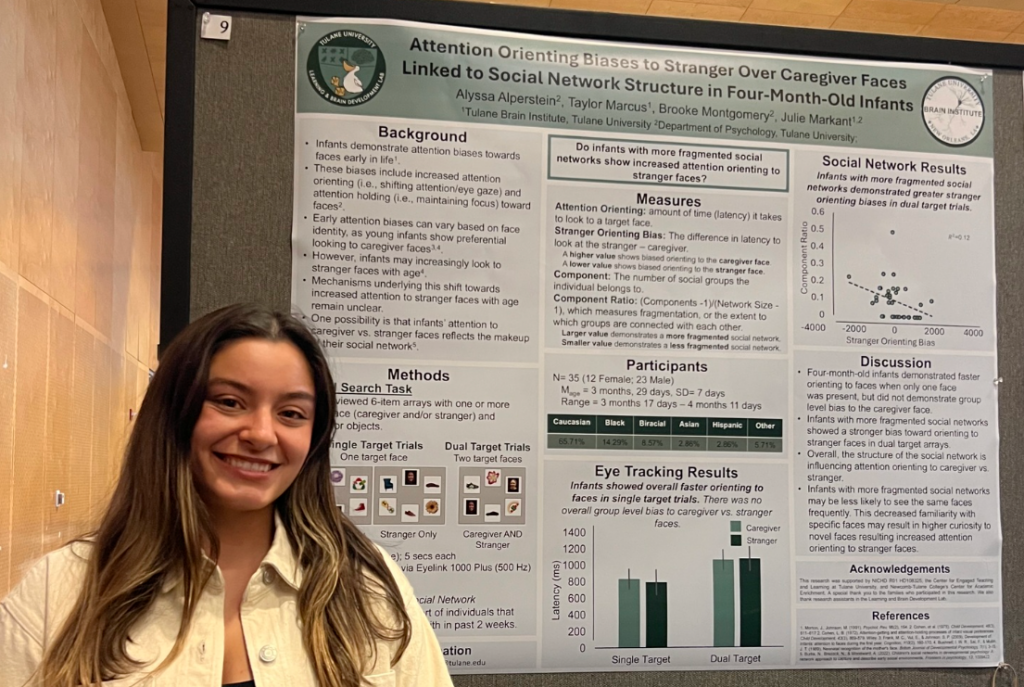
Focused Attention & Play in Infancy
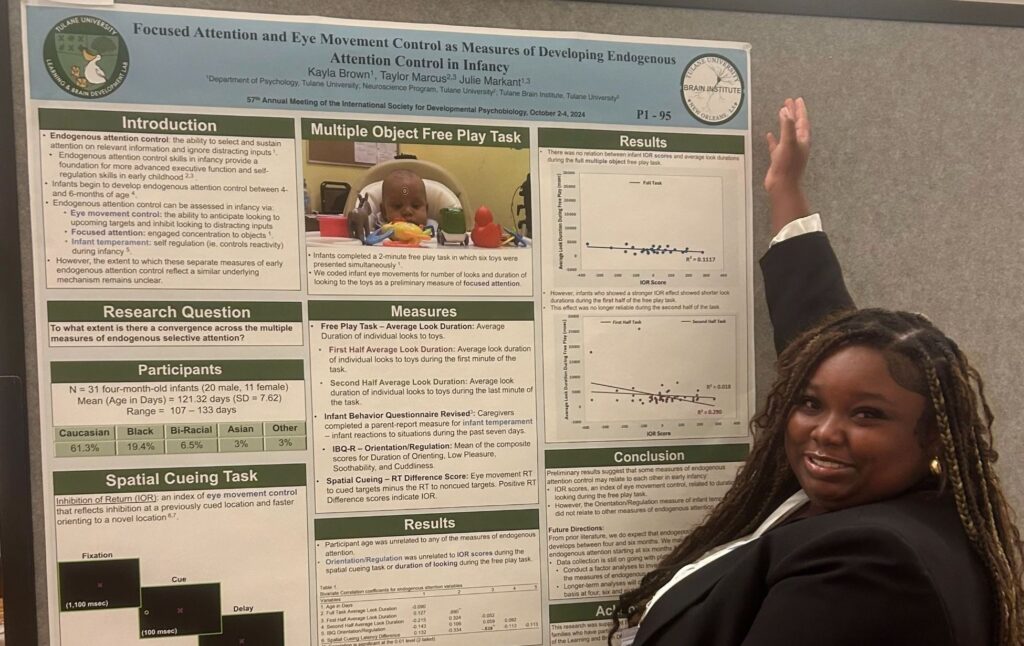
- 4-month infants with a greater ability to focus on relevant information and filter distractions held their attention on toys for longer durations during play.
- These infants were also more likely to shift their gaze toward faces when viewing an array of faces and objects.
Thank you to the families that have made these discoveries possible! 🧠🍼🌊
Find the full projects with more info on these findings:
Want to learn more about participation?

How do visual cues influence how children learn in online lessons?
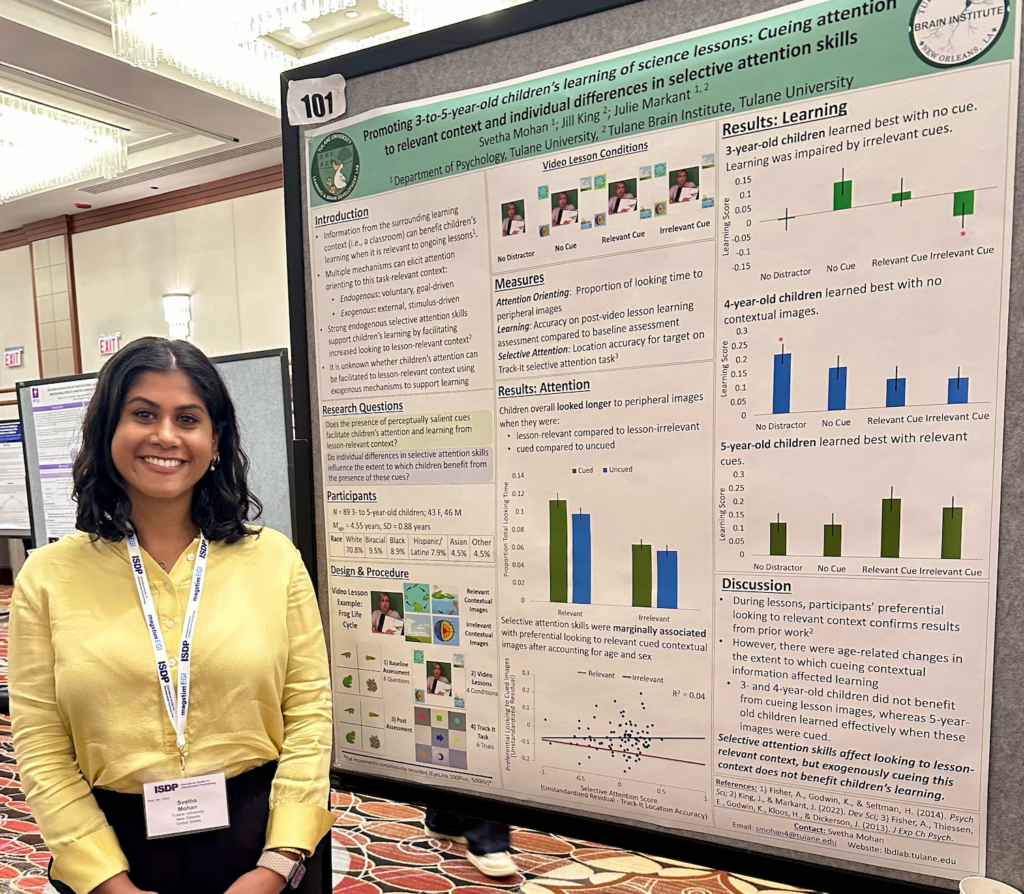
This study explored how 3- to 5-year-old children learned when surrounded by lots of information – like what happens in a busy classroom.
We explored whether giving children special “cues” to highlight important parts of a science lesson would help them learn.
Interestingly, when attention-grabbing cues were added, children learned less – even when the cues related to the lesson. The more time children spent looking at those cues, the lower their learning scores.
These findings suggest that giving children the space to explore and focus on their own is what’s best for learning.
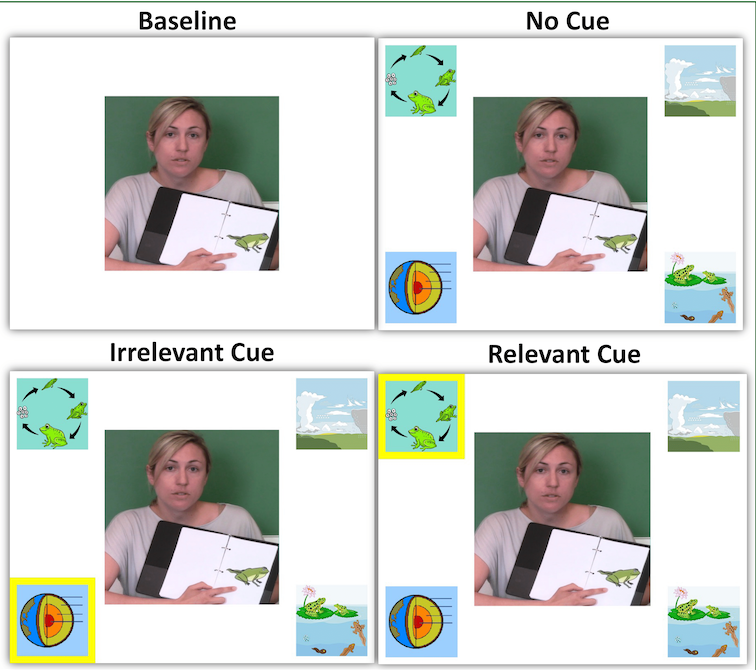
We’re now building on this work with a study exploring how auditory cues influence learning. If you have a 3- to 5-year-old and are interested in learning more, please get in touch!

Which faces capture babies' attention?
Babies are always learning from the world around them – especially by looking at faces. This study explored infants’ preferences for looking at faces of their own race, other races, or even other species’ faces.
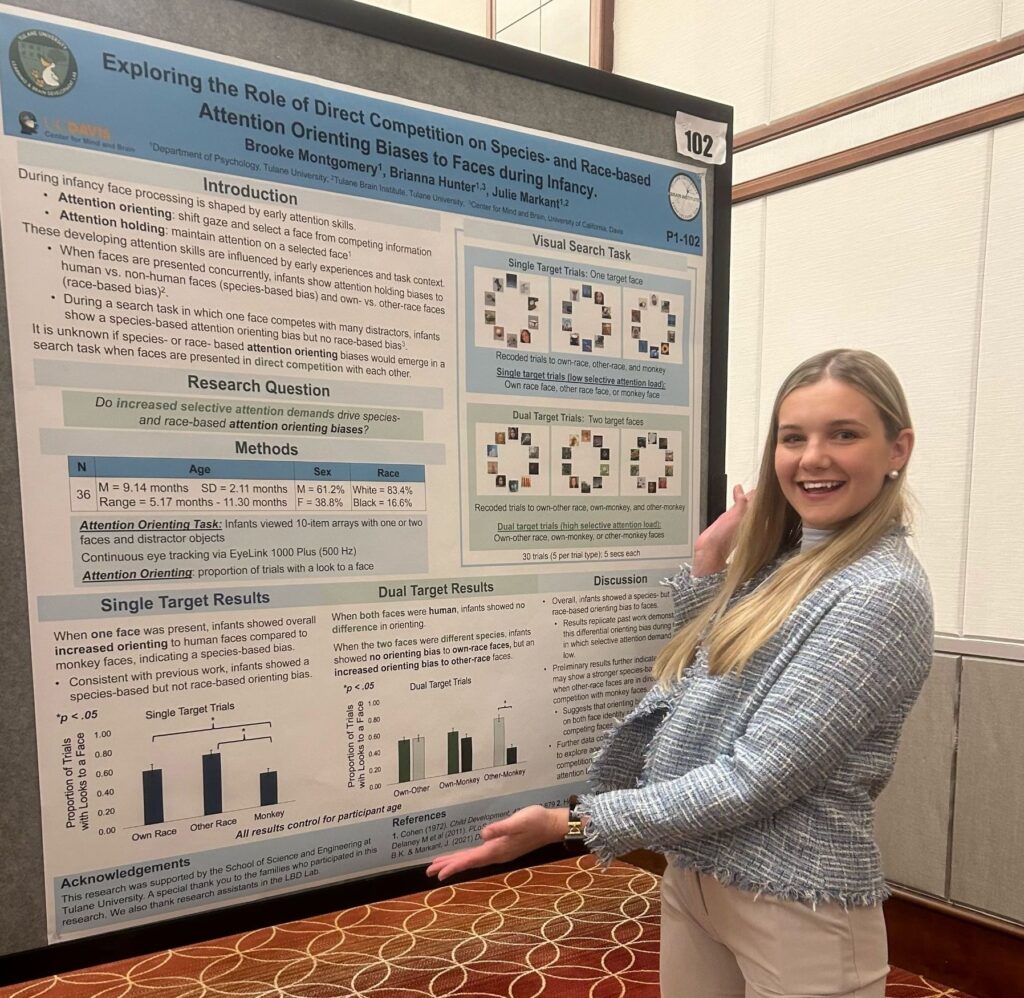
5- to 11-month infants were shown arrays that included everyday objects and either one or two faces. When babies saw arrays with one face, they spent more time looking at human faces. But when two faces were shown together, babies looked longer at faces of another race compared to their own.
These results show that babies notice and react to what’s familiar and what’s new – and their attention can shift depending on what they see together!
Click below to read more about these findings.

🎉 Celebrating Our Krewe! 🎉
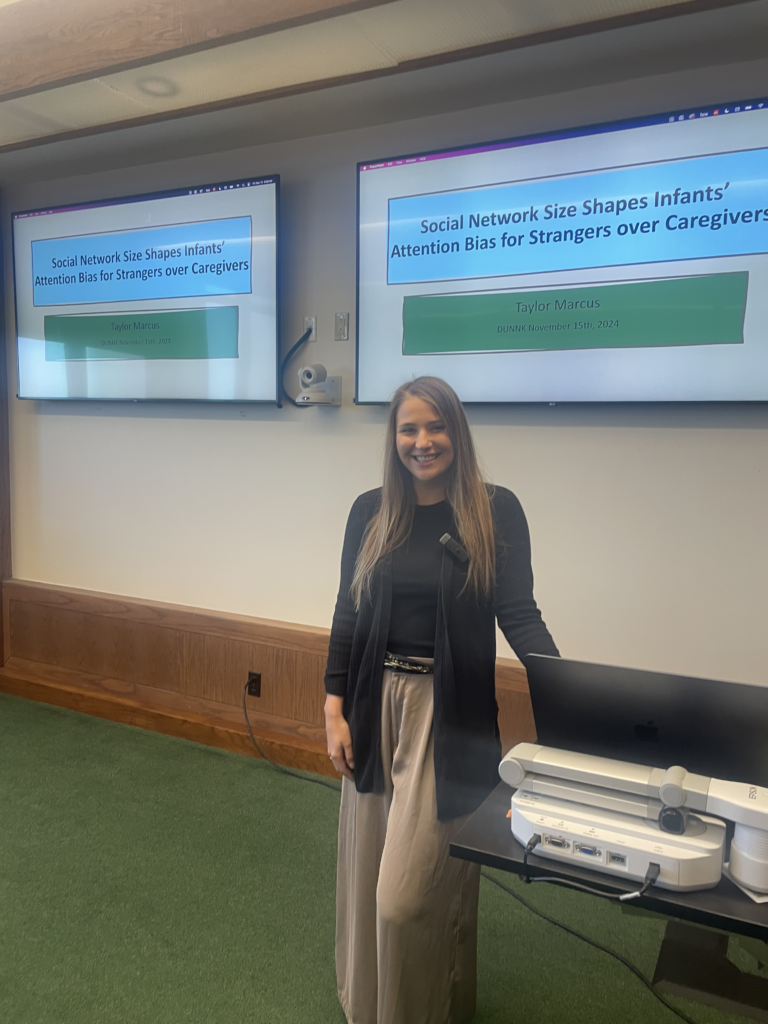
Graduate Student Taylor Marcus presented at the 3-Minute-Thesis Competition, taking home the Popular Choice Award for her engaging presentation!
Senior RA Emma Meyer won third place at Tulane’s 2024 School of Science and Engineering poster presentation, competing against hundreds of impressive student research projects.


This year, the Learning and Brain Development Lab and our lab director, Dr. Julie Markant, will celebrate a decade of research, learning, and discovery!

⚜️ In the Community ⚜️
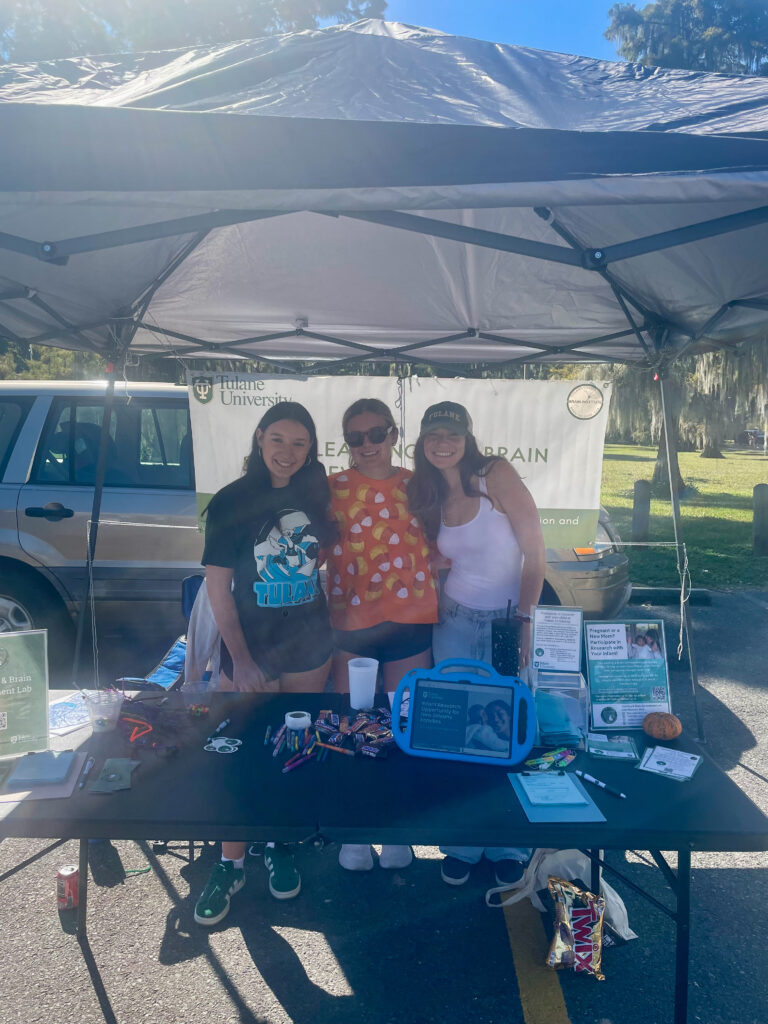
We always have a wonderful time meeting families and enjoying local delights at the Crescent City Farmer’s Markets across New Orleans.
We enjoyed celebrating expecting families and meeting community partners at the WePlay Center’s Community Baby Shower!

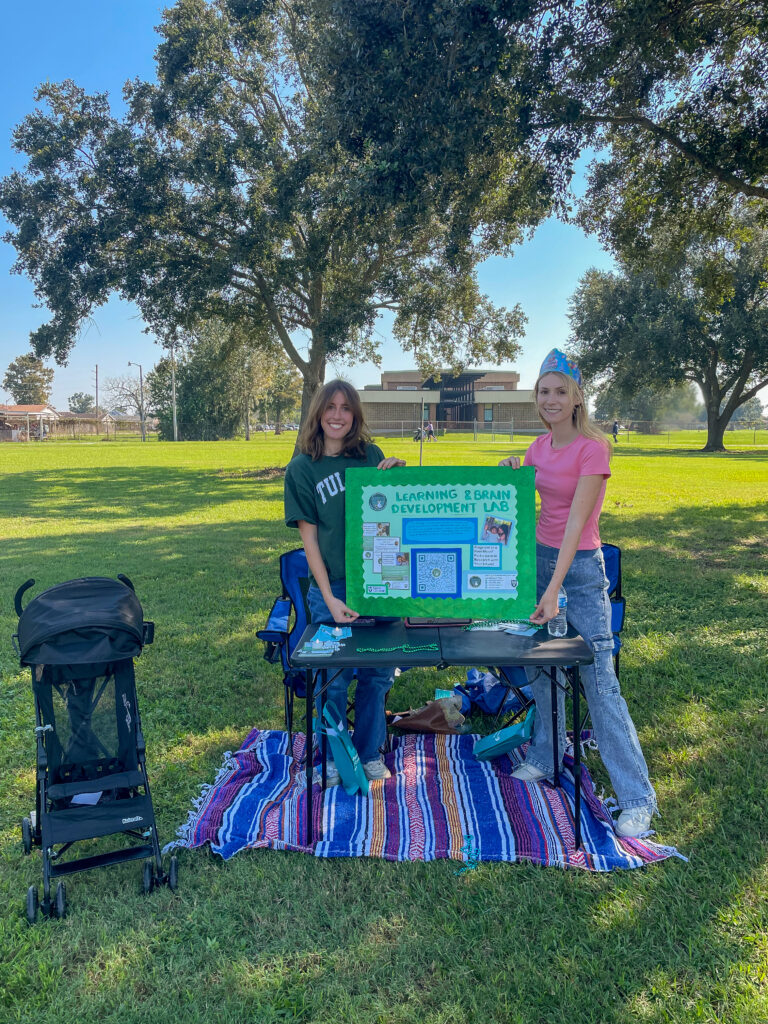
Our team also loved attending Crescent City Family Service’s annual Strolling for Life event and learning about maternal health.
We’re incredibly grateful for our community partners and all they do!
Click below to check out our list of family-friendly activities, services, and resources in the New Orleans area!
504-862-3312 | lbdlab@tulane.edu
